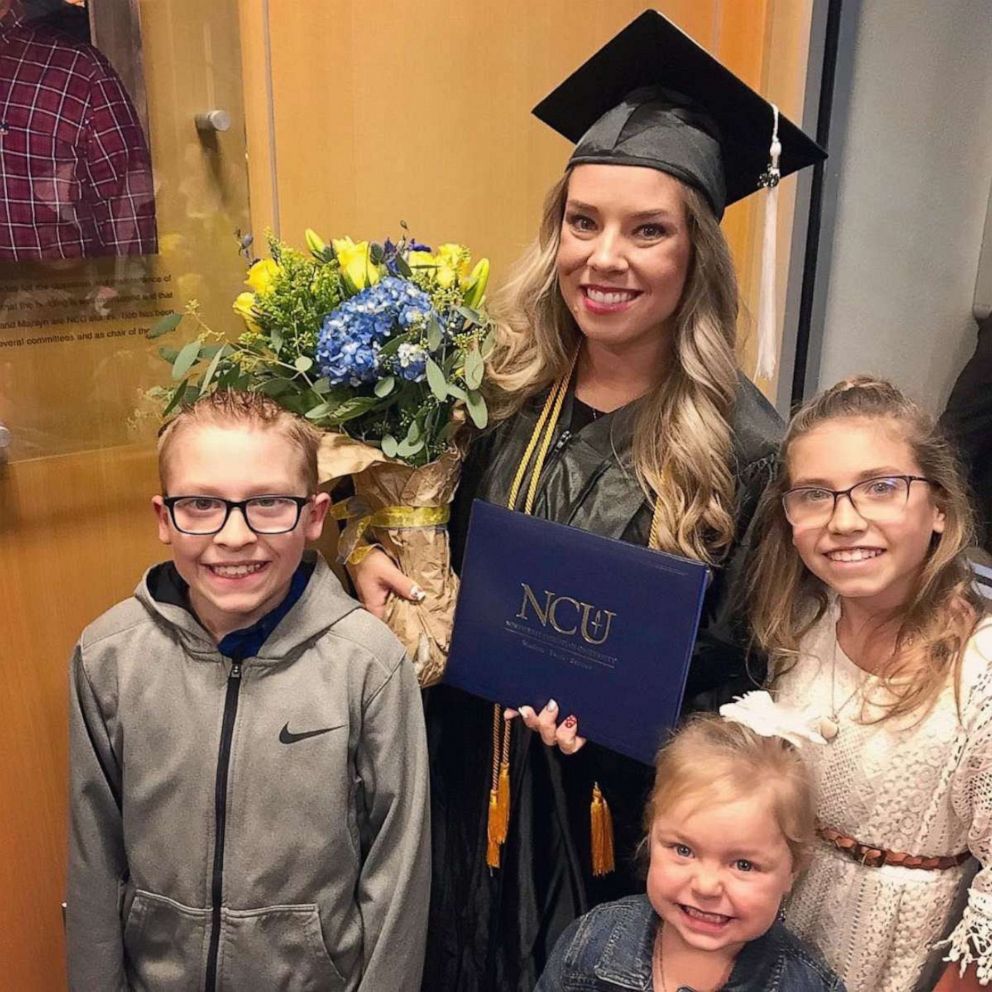How isolation during coronavirus can impact those recovering from addiction
"Many people particularly right now probably feel very alone."
Staying at home during the coronavirus pandemic can be filled with carefree moments like quarantinis and virtual happy hours.
But, it can also mean troubling temptations for those recovering from addiction like blogger and recovering alcoholic Harmony Hobbs.
“Getting sober was the hardest thing I’ve ever had to do in my life,” Hobbs told ABC News' Deborah Roberts in an interview that aired Tuesday on “Good Morning America.” “Staying sober during this pandemic is close second to that.”
Hobbs, a writer from Louisiana who is three years sober, first opened up about her struggles to stay resist temptation while in quarantine on her blog.
"I’m trying to lean in. I am sober. I can think of this time as a gift. I can try to enjoy my home and my kids and be grateful that I don’t have to go anywhere. I can make gratitude lists, and try to make the best of it, and work on my spiritual growth," she wrote. "BUT Y’ALL. I’m in recovery for alcoholism — which 100% ramped up when I became a stay at home mom, even though I wanted to be a stay at home mom."
And it’s not just Hobbs who’s facing these challenges. Last week on her Facebook Watch show, “Red Table Talk,” Jada Pinkett-Smith, who has been sober for more than 20 years, opened up about how being in quarantine has been difficult for her.
“It’s been a long time since I’ve had a drink or anything but it’s so funny because old, emotional habits try to creep back in,” Smith said on her show. “That’s been a trip because I haven’t had to deal with that in a long time. Old, emotional habits that you would use to justify [and say] ‘let me just take out a bottle of wine and just kick it’ you know what I mean?”
How isolation can be triggering
In the past year, one in 12 adults in the U.S. had a substance use disorder, according to the Substance Abuse and Mental Health Services Administration (SAMHSA). And according to some estimates, alcohol sales were up more than 50% in the last few weeks.
As Americans are asked to shelter-in-place, stress from the pandemic is taking its toll on many, which can leave many resorting to alcohol or drugs to help cope.
Hobbs, who has three kids, expressed how life in quarantine can take its toll on her.
“It feels very isolating and isolation is a trigger for people with substance abuse problems,” she said.
For Dr. Timothy Brennan, director of the Addiction Institute at Mount Sinai West, the pandemic has left him with a lot of concerns for his patients.
“I am very worried that not only my existing patients who are in recovery already but also a lot of patients that I don’t yet know about are really struggling with unhealthy habits,” Brennan told “GMA.” “I am incredibly concerned about the struggles people are facing."
Sobriety help online
To help prevent herself from turning to old habits, Hobbs went online and started communicating with other people in recovery through platforms like Zoom.
"My disease wants me be drunk or dead and that's why I started communicating with other people in recovery through Zoom and other technological ways," she said. "I cannot stress enough what an important tool that has become for everyone, not just for myself."
Brennan tells people struggling with substance abuse that, in part thanks to the internet, they are "not alone" while staying at home.
“Many people particularly right now probably feel very alone," he said. "My message to those people is that you are not alone and that there is help available to you literally right from your computer."
One online option, a platform called Monument, which Brennan is not affiliated with, also allows people to connect with others dealing with addiction.
Developed by CEO and co-founder, Mike Russell, the virtual support system offers tailored programs for each client and online treatment from therapists to group chats. Russell says the platform is designed for those in recovery and for anyone who may feel the need to dial back on alcohol or other drugs.
“We have a network of physicians and therapists," Russell told "GMA." "And we connect you to people, medical professionals who can work with you to develop that plan and customize it to the needs of our members.”
While online help is now available, anyone who is struggling with substance abuse should seek help from their physician or another healthcare provider.
If you or someone you know is struggling with substance abuse, call SAMHSA’s National Helpline at 1-800-662-HELP (4357). SAMHSA’s National Helpline is a free, confidential, 24/7, 365-day-a-year treatment referral and information service.






